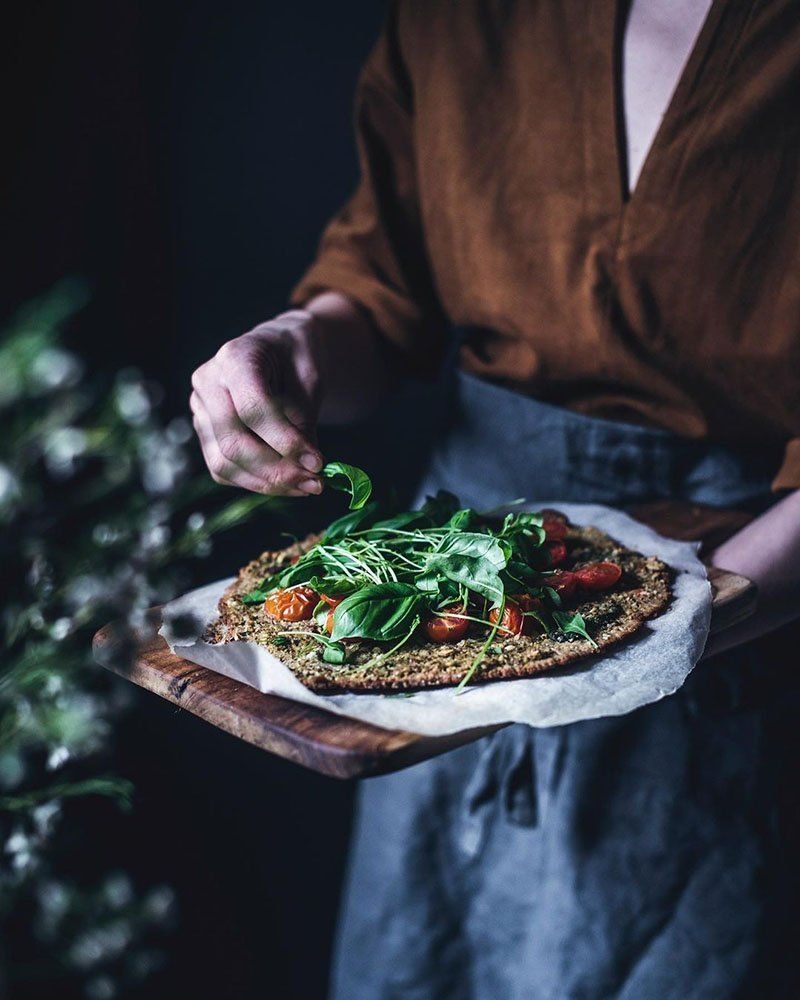
Image: @violaminerva
Did you know that there are around 70 types of basil used in cooking? Most of us would have come across sweet and maybe Thai basil but that is just the tip of the iceberg.
While some types are more popular as spices, others are used as edible decorative finishes to dishes. Then there are those that can be added to desserts and a whole other category used in teas. The herbal tea varieties are often used for their medicinal properties. And the one that reigns above them all is Ocimum sanctum, otherwise known as holy basil or tulsi.
Tulsi, or holy basil, is more than just a spice. It is one of the most potent and easily available adaptogens. It was considered a sacred herb by Hindus and has a special place in their ancient Rigveda scriptures, where it is mentioned in relation to religious rituals and prescribed as a remedy for pretty much every ailment.
This type of basil grows in its native India but also in other warm countries and can even grow in moderate climates, if grown in greenhouses. It is often confused with sweet basil, basil mint and clove basil. Although they are all just as tasty as each other, their properties are still poorly known. Meanwhile, tulsi has been the subject of meticulous scientific research over the course of the past few decades.
So, what is the best way to distinguish tulsi from its basil cousins? There is little point in looking out for a certain colour. Holy basil can be both green and purple. Its main distinction is in the roughness of its foliage. Tulsi’s leaves and stem are fluffy, while sweet basil’s stems are completely smooth. It also lacks the aniseed scent typical of other basils.
A cup of holy basil tea is a great way to stay focused and productive, if you are dealing with chronic insomnia, jet lag or any kind of mental or emotional overload. This is largely due to its antioxidative and cardioprotective qualities. The herb is great at preventing vessel spasms and disintegration, meaning that all of the body’s organs and systems continue to function as they should irrespective of increased workload.
The same can apply to all adaptogens, given their direct impact on the central nervous system. However, animal studies suggest that holy basil extract can be used to prevent a stroke, heart attack and atherosclerosis as it is a powerful blood thinner.
Holy basil’s blood thinning qualities also suggest that it can be a good preventative treatment against the side effects of Covid-19. It is now known that thrombosis is one of its most common and dangerous side effects, which is why anticoagulants are typically prescribed.
But even before the onset of the pandemic, tulsi was used as a preventative treatment for colds and flus. This is all due to the herb’s antibacterial and antiviral properties. Studies have shown that brewed tulsi leaf tea can be beneficial both when taken internally but also for such home treatments as gargling a sore throat.
Regular consumption of holy basil can prevent the development of type 2 diabetes. Case studies have shown that it increases the cells’ insulin sensitivity while also enhancing the release of glucose by the skeletal muscles. This makes basil tea a useful pre-workout drink as it helps burn fat and increase muscle mass.
Holy basil was once considered for the development of male contraceptives. This is one of the most problematic areas of pharmacology, given that typically substances which suppress sperm production also happen to supress erection. This is where tulsi comes in. Paradoxically, this plant increases testosterone while lowering the levels of luteinising hormone at the same time. In other words, it promotes erection but reduces the amount of sperm. Given that for women sexual arousal is also reliant on testosterone levels, holy basil can be considered an all-around aphrodisiac.
As you might have suspected, the above usage does mean that tulsi should be used with care if you are planning to get pregnant. This applies to both men and women. It is best not to overdose on basil during pregnancy, given that its anticoagulant qualities can lead to bleeding and hormonal changes that can trigger a miscarriage in the first trimester. This is not to say that basil should be avoided altogether. While it can still be used in cooking, teas and supplements should be avoided. It is always best to consult your doctor prior to taking any form of supplementation.
Like any basil, holy basil is a great aromatic herb, which goes well with meat but equally in a strawberry dessert. If you are after its healing properties, best to opt for teas, tinctures or capsules.